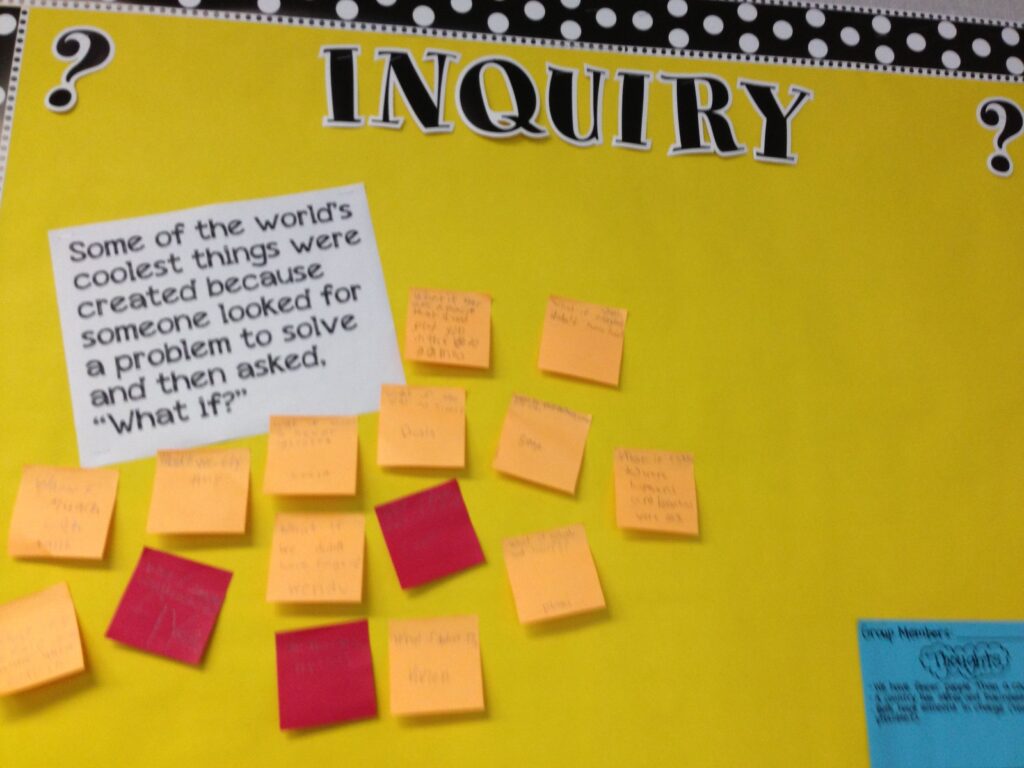Students enrolled in the Ed.D. Educational Psychology and Technology Online program are required to attend two residencies. Residency sessions focus on various aspects of the field of educational psychology and technology, including dissertation research, professional development skills, and community building. Both residencies include opportunities for mentoring and provide an extension of program learning. Residencies also enhance student relationships within and across cohorts and provide an opportunity for students to meet program faculty and staff. Active engagement and attendance in all residency activities are required for the completion of this program requirement. Students must successfully complete both residencies in order to graduate from the program.
EP805: Residency I – 2023 Summer 1

Related Posts

ITI690 Inspired Teaching Inquiry
Course Description Covers current theories and applications of evidence-based Inspired...

ITL530 Optimized Learning Community
Course Description Research-based strategies and models managing an equitable and...

ITL528 Single Subject Integrated Design II
Course Description Integrative instructional design models, approaches, and research in...
Recent Posts
- Gamified Project-Based Learning: Literature Review First Draft
- Annotated Bibliography: Gamified Project-Based Learning (GPBL) – Week 3
- Gamified Project-Based Learning (GPBL)
- Annotated Bibliography: Gamified Project Based Learning (GPBL) – Week 2
- Annotated Bibliography: Gamified Project Based Learning (GPBL) – Week 1
Recent Comments
No comments to show.
Categories
- Academic Policies
- Academic Standards
- Action Research in Education
- Addressing Learning Barriers
- Adolescent Development
- ALgebra I
- Algebra I Concepts
- Algebra in Real Life
- Algebra Instruction
- Algebraic Learning
- Algebraic Word Problems
- Assessment and Evaluation
- Assessment and Feedback
- Assessment and Rubrics
- Assessment Strategies
- Behavior Management
- Classroom Assessment Reliability and Validity
- Classroom Assessments
- Classroom Challenges
- Classroom Management
- Classroom Management and Environment
- Classroom Management and Instructional Strategies
- Classroom Observation
- Classroom Practices
- Classroom Strategies
- Collaborative Learning and Teamwork
- Collaborative Projects
- Common Core State Standards (CCSS)
- Community Engagement
- Content Area Literacy
- Contest Submissions
- Course Descriptions
- Coursework
- Creative Education
- Cultural Awareness in Teaching
- Cultural Competency and Inclusivity
- Curriculum Development
- Curriculum Planning
- Differentiated Instruction
- Differentiated Learning
- Differentiation in Teaching
- Dissertation Ideas
- Diverse Educational Resources
- Diversity and Inclusion
- Diversity, Equity, and Inclusion (DEI) in Education
- Education
- Education and Community Involvement
- Education and Teaching Strategies
- Educational Aspirations
- Educational Assessment
- Educational Assessment Strategies
- Educational Data Analysis and Assessment
- Educational Design
- Educational Equity
- Educational Growth Strategies
- Educational Methods
- Educational Methods and Strategies
- Educational Planning and Strategy
- Educational Policy and Compliance
- Educational Professional Growth
- Educational Psychology
- Educational Psychology and Development
- Educational Research
- Educational Research and Theory
- Educational Standards and Assessment
- Educational Standards and Practices
- Educational Strategies
- Educational Strategies and Techniques
- Educational Technology
- Educational Technology and Tools
- Educational Theories
- Educational Theory and Practice
- Educator Professional Development
- Emotional Intelligence
- English Language Learning
- EP600: The Psychology of Learning
- EP607: Qualitative Methods in Educational Research
- EP614: The Psychology of Motivation and Emotion in Learning
- EP746: Culture's Place in Learning and Technology
- EP805: Residency I – 2023 Summer 1
- Equity and Inclusivity in Education
- Equity in Education
- Family Engagement in Education
- Family Involvement in Education
- Formative and Summative Evaluations
- Gamification in Education
- Gamified Learning
- Grading Practices
- Guest Authors
- Historical Mathematics
- Inclusive Algebra Strategies
- Inclusive and Adaptive Teaching Strategies
- Inclusive and Differentiated Learning
- Inclusive Education
- Inclusive Education and Diversity
- Inclusive Education and Special Needs
- Inclusive Education Strategies
- Inclusive Teaching
- Inclusive Teaching Practices
- Inspired Teaching Practices
- Instructional Design
- Instructional Planning
- Instructional Strategies
- Instructional Strategies and Classroom Management
- Instructional Strategies in Mathematics
- Integrating Literacy and Mathematics
- Integrating Literacy in Math
- Interdisciplinary Learning
- Interdisciplinary Teaching
- ITI690 Inspired Teaching Inquiry
- ITL520 Academic Language & Literacy
- ITL522 Content Area Literacy
- ITL526 Single Subject Integrated Design I
- ITL528 Single Subject Integrated Design II
- ITL530 Optimized Learning Community
- ITL600 Becoming a Teacher
- ITL604 Learners and Learning I
- ITL606 Learners and Learning II
- ITL608 Design and Process of Teaching
- Kappa Delta Pi
- Language Development
- Language Learning
- Learning and Development
- Learning Theories
- Lesson Planning and Assessment
- Lesson Planning and Design
- Lesson Plans
- Literacy and Comprehension
- Literacy and Reading Strategies
- Literacy Education
- Literacy in Content Areas
- Literacy Instruction
- Literacy Integration
- Math and Engineering
- Math Education Innovations
- Math Teaching Strategies
- Mathematical Literacy Development
- Mathematics and Science Integration
- Mathematics Education
- Mathematics Instruction
- Multi-Tier System of Supports (MTSS)
- Multicultural Education
- National University
- Overcoming Communication Barriers
- Parent-Teacher Communication
- Parenting and Caregiving
- Passionate Teaching Journey Blog
- Peer Support in Education
- Personal and Professional Development
- PK-12 Education
- Problem-Solving Skills
- Professional Development
- Professional Development in Education
- Program Requirements
- Project-Based Learning
- Reflective Practice
- Reflective Self-Assessment
- Scholarship/Award Applications
- School Community Engagement and Development
- School Support Programs
- Social and Emotional Learning (SEL)
- Social Emotional Learning
- Social Justice in Education
- Special Education
- Special Education and Inclusion
- Special Education and Inclusivity
- Special Education Strategies
- Specialized Instructional Strategies
- Standards-Based Instruction
- STEM Education
- STEM Education Strategies
- Strategic Planning in Teaching Careers
- Student Assessment and Evaluation
- Student Challenges
- Student Development
- Student Development and Support
- Student Diversity
- Student Engagement and Learning
- Student Engagement and Participation
- Student Engagement and Support
- Student Engagement Strategies
- Student Learning and Assessment
- Student-Centered Learning
- Student-Centered Teaching Strategies
- Systems of Linear Equations
- Teacher Career Development
- Teacher Credentialing
- Teacher Development
- Teacher Development and Strategies
- Teacher Development and Training
- Teacher Introductions
- Teacher Professional Development
- Teacher Professional Development and Planning
- Teacher Training and Development
- Teacher Training and Professional Development
- Teaching Challenges
- Teaching Credentials and Certification
- Teaching Mathematics
- Teaching Methodologies
- Teaching Methods and Strategies
- Teaching Reflections
- Teaching Strategies
- Teaching Strategies and Classroom Management
- Teaching Techniques
- Text-Based Teaching Methods
- The Chicago School of Professional Psychology
- Universal Design for Learning (UDL)
- Visual and Performing Arts in Education